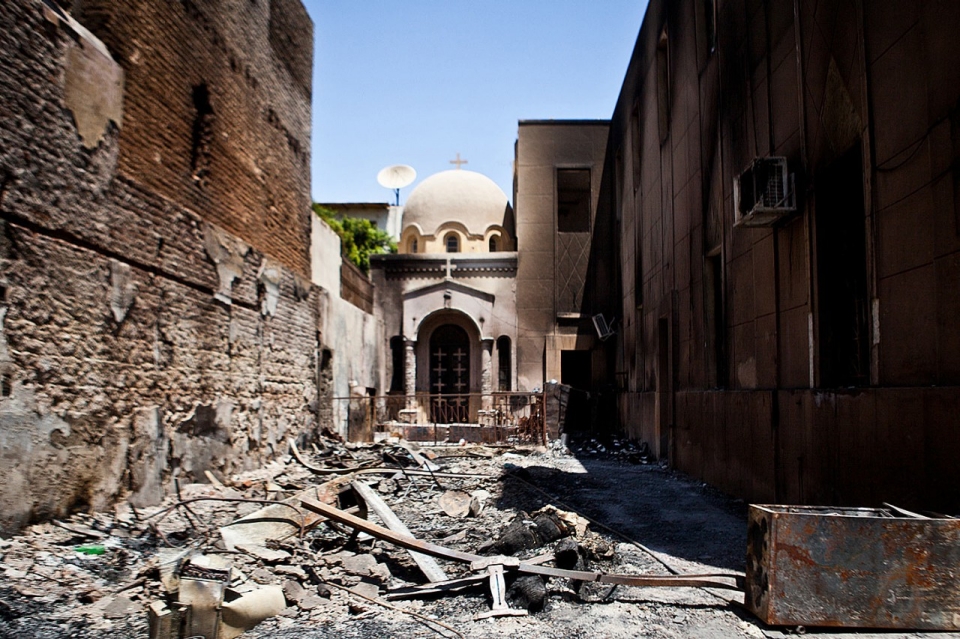
A group of Islamic extremists recently attacked a church set up to honor the 21 Coptic Christians beheaded by ISIS in Libya on the same day a commemorative mass was held to mark 40 days since their death
The Daily News Egypt reported that on Friday, the church, which was being built in Al Our village in the Minya governorate, the hometown of 13 of the martyred Christians, was attacked with Molotov cocktails by an angry mob. Seven people were severely injured in the attacks, and one worshiper's car was left burning.
On the same day, a mob, who were identified by witnesses as members of the Muslim Brotherhood, attacked the home of one of the martyr's family using bricks and stones.
Coptic residents of al-Our had reportedly obtained permission to build the church, which was to be called the Church of the Martyrs of Faith and Country of Al Our, in the aftermath of the beheadings in Libya, which left the village's tight-knit Christian community devastated.
"I felt peace knowing that they died as martyrs in the name of Christ," explained Beshir Kamel, whose two brothers were among those slain. "Of course, the first reaction was sadness at being separated from family."
However, plans to honor the victims with a church dedicated to their memory have been continually undermined by opposition groups, who regularly gather in front of the church to rally against its construction.
According to Lora Moftah of the IBTimes, violence between Muslim and Christian communities in Minya has escalated since 2013, when Egypt's first democratically elected president Mohammed Morsi, who supported the Muslim Brotherhood, was deposed in a coup by the military. Consequently, some supporters of Morsi believe Christians had a role in his overthrow and revenge attacks against the group, which make up 10% of the population, have become increasingly common in the southern Egyptian province.
"[Minya] lacks the development and projects needed to sap the energy of young people and protect them from people who exploit them in this kind of strife, such as the Muslim Brotherhood or other parties with particular interests," explained the province's security chief, Maj. Gen. Osama Metwally. "We are faced with many difficulties, most important of which is that people here have highly volatile temperaments, with full-blown sectarian strife almost erupting as a result of trivial disputes that nearly become religious catastrophes."
After the attacks, members from the Coptic and Muslim communities in the village reportedly attended a reconciliation meeting, where it was agreed that the site of the church would be moved, and the seven arrested protesters were released.














